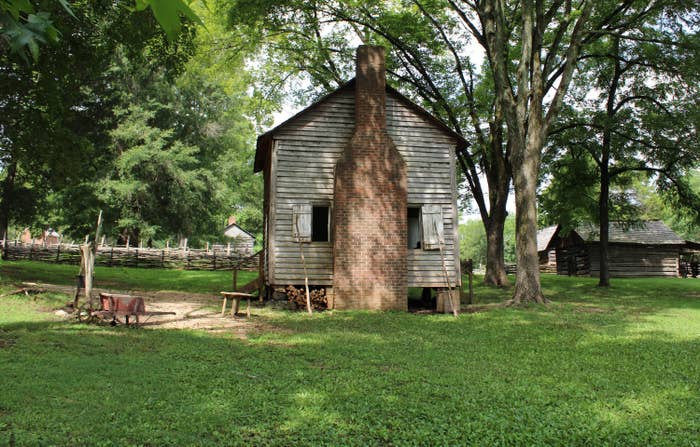
Airbnb will no longer allow people to rent out houses where enslaved people used to live, including on former plantations, the company said in an anti-discrimination report published this week.
As part of a new policy announced Tuesday, the vacation rental website will ban listings of any residence on a plantation “if structures that existed during the time of slavery are still present on the property,” bar any structure that housed enslaved people and that was built specifically for that purpose, and prohibit renters from promoting “slavery-related features” as a selling point of a rental.
Some educational tours or events relating to the history of slavery will continue to be listed on the website “when undertaken with reputable partners and experts,” the company said in the report on its efforts to combat discrimination on the platform.
The new policy, which applies to US properties, was established with input from historic preservation architect Jobie Hill and following discussions with Color of Change, an online racial justice organization that in 2019 pushed websites to stop promoting wedding content that romanticized plantations where people were enslaved.
Airbnb is actively taking down listings and “will continue to evaluate cases as they arise,” Ben Breit, an Airbnb spokesperson, told BuzzFeed News.
“Currently we have removed listings and experiences associated with roughly 30 properties that are violating our policies,” Breit said.
Evan Feeney, a deputy senior campaign director for Color of Change, said Airbnb’s new policy was an “industry-leading prohibition on the glorification and marketing of slavery” that they hope other vacation rental platforms will emulate.
“The only place now where plantations will be able to be listed [on Airbnb] is through specifically curated experiences that have historical value and are not meant to be a form of profit or entertainment,” he said.
Color of Change first reached out to Airbnb in 2019 about plantations where people were enslaved being rented out on its website, according to Feeney.
The company came under fire in July this year over a “slave cabin” listing on its platform after a TikTok about the rental went viral.
Called the Panther Burn Cottage on Belmont Plantation in Greenville, Mississippi, the listing described it as “an 1830s slave cabin” that “has also been used as a tenant sharecroppers cabin,” and boasted the building’s “wide cypress boards [that] are original to the first build in the 1830s.”
“This is not OK in the least bit,” lawyer Wynton Yates, who posted the TikTok, said in the video. “How is this OK in somebody’s mind, to rent this out — a place where human beings were kept as slaves — rent this out as a bed and breakfast?”
Airbnb removed the listing from its website and apologized for not acting sooner. “Properties that formerly housed the enslaved have no place on Airbnb,” it said in a statement at the time.
The property’s owner, Brad Hauser, also apologized, saying the rental of the cabin was a legacy from the previous owner that Hauser would no longer continue, CNN reported.
Airbnb began exploring a policy on slavery-related properties and experiences following Yates’s TikTok, Breit said.
Like the Greenville listing, many of those on the platform romanticized and glorified houses where enslaved people used to live, portraying them “as a place of happiness and cheer and like, good ol’ days,” Feeney said.
“These places really should be remembered for the hardships and horrific acts that happened here. They should not be a source of profit and entertainment,” he said.
“Just the same way that we would be appalled if someone was trying to rent out concentration camps in Austria and Germany and Poland as summer getaways, we should be equally as appalled here in the United States when someone's trying to rent out houses where Black folks were enslaved for hundreds of years,” Feeney said.
